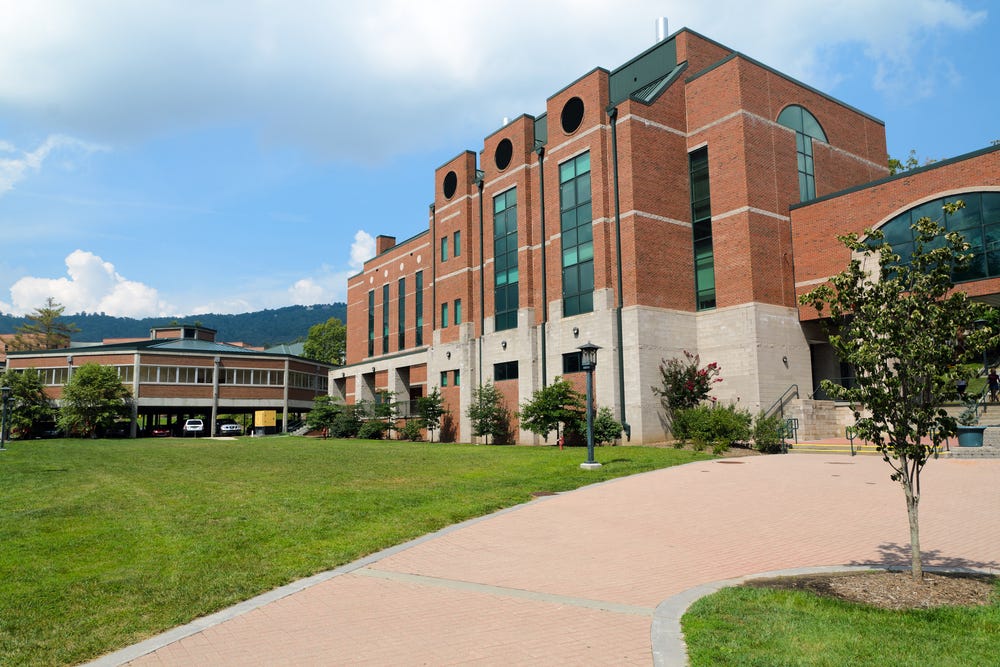E-Pluribus | November 17, 2023
Diversity, Equity and Failure; the college (administrator) free speech crisis; and universities must take antisemitism seriously.
A round-up of the latest and best musings on the rise of illiberalism in the public discourse:
David Brooks: Universities Are Failing at Inclusion
Sometimes one crisis can highlight a problem better than hundreds of speeches and essays, no matter how cogent and compelling the words may be. David Brooks of The New York Times points out how the Israel-Hamas war is exposing the “I” in DEI (Diversity, Equity and Inclusion) for the sham that it often is.
Universities are supposed to be centers of inquiry and curiosity — places where people are tolerant of difference and learn about other points of view. Instead, too many have become brutalizing ideological war zones, so today the most hostile place to be an American Jew is not at some formerly restricted country club but on a college campus.
How on earth did this happen? I’ve been teaching on college campuses off and on for 25 years. It’s become increasingly evident to me that American adolescence and young adulthood — especially for those who wind up at elite schools — now happen within a specific kind of ideological atmosphere.
It centers on a hard-edged ideological framework that has been spreading in high school and college, on social media, in diversity training seminars and in popular culture. The framework doesn’t have a good name yet. It draws on the thinking of intellectuals ranging from the French philosopher Michel Foucault to the critical race theorist Derrick Bell. (For a good intellectual history, I recommend Yascha Mounk’s recent book, “The Identity Trap.”)
[. . .]
There are many teachers and administrators who believe that they best serve society not by being open and curious and searching for the truth but by propagating this ideological framework.
One passage from a D.E.I. curriculum guide symbolizes for me the way ideological activism is replacing intellectual inquiry as the primary mission of universities. It’s for the faculty at California Community Colleges, and it advises: “Take care not to ‘weaponize’ academic freedom and academic integrity as tools to impede equity.” In other words, spreading a specific ideology is more important than academic integrity.
Students have gotten the message that they are not on campus to learn; they are there to express their certainties and to advance a rigid ideological formula.
Read it all here.
Nathan Goetting : A College Free Speech Crisis: The Challenge of Complicit College Administrators
Despite the explosion in the number of college administrators, Nathan Goetting at Discourse Magazine writes that they are nevertheless failing to maintain core principles that should be the foundation of any institution of higher learning. Administrators that emphasize conformity above all are doing their faculty and students, and by extension the country, a grave disservice.
[O]ur current free speech predicament is also quite different from those of the past, in at least a couple of especially ominous ways. The purges of previous eras involved the failure of schools to live up to the free speech ideals they claimed to espouse. For example, when Harvard forced historian Ray Ginger to resign for refusing to take a loyalty oath in 1954, the university claimed it was because Ginger and other suspected communists wouldn’t swear to uphold our constitutional system of government, of which the First Amendment right to freedom of expression is a centerpiece. But today, it is the freedom of expression itself, both in practice and as a constitutional ideal, that is under attack—not just on campuses but throughout society.
Also, in previous eras censorship was imposed in a largely top-down fashion, with older generations policing the rebellious minds of youthful radicals. The Cold War censors of the McCarthy period were ultimately overtaken by a younger generation who, in a burst of freedom, started a radical free speech movement on U.S. campuses during the 1960s. Today, the youngest generation of adults is mobbing and rioting in favor of censorship rather than against it. This bottom-up demand for censorship is a new phenomenon in American history—and so far, it has been extraordinarily effective and shows no sign of relenting.
[. . .]
While the hostility of faculty and students to free speech, academic freedom and intellectual diversity is a huge problem, it’s administrators who are tasked with enforcing the rules that guarantee these values. Faculty have little power to censor outside the classroom, and students have virtually no power to censor that isn’t given to them from above.
University presidents and deans are encouraging the censorial instincts of faculty and students and failing to protect those who express unpopular or offensive beliefs on campus when they need that protection most. Those who do express such beliefs can be subject to stigma, ostracism and vindictive conduct. According to a recent major study, over 80% of college students censor their own views “at least some of the time.” They have no faith that the institution they belong to will safeguard their right to speak.
Perhaps the unkindest cut of all, though, has been the alacrity with which administrators have thrown faculty caught in public free speech controversies to the wolves. Instead of shielding their employees and teaching the public the importance of free speech, they have frequently joined the mass denunciations and public shaming. Their treatment of faculty has been especially ungracious given the blurry and constantly shifting standards defining the new campus orthodoxy under which professors have had to operate.
Read the whole thing.
Lawrence H. Summers: The cancer of antisemitism is spreading. Colleges must take the right stand.
Harvard’s response to Hamas’s attack on Israel in early October has been roundly criticized. The latest to take the school to task is its former president Lawrence Summers, writing in the Washington Post. Summers does not exempt himself from responsibility when he says that colleges like Harvard, diversity and inclusion programs notwithstanding, are not doing an adequate job educating their students about the dangers of “antisemitism, the oldest prejudice of them all.”
. . .I am shocked and appalled by what I have seen on university campuses since Oct. 7. I should have raised my voice louder. It is not a mistake I will make again.
We come together at a moment of danger.
Antisemitism is a cancer — a lethal adversary best addressed as rapidly, thoughtfully and aggressively as possible.
Harvard and many other elite universities have not been swift in their response. Though some universities have done better. After a long month of delay, the kinds of statements that many of us have been insisting on from the first day have come at last from university leaders.
[. . .]
How, then, to go forward? Spreading cancers cannot be contained with limited, casual or partial responses. The stronger and more vigorous the response, the greater the prospect of a return to normal.
Though intellectual communities often pride themselves on being at the vanguard of justice, this is not always the case. German universities were not just passive but on the wrong side in the 1930s. American universities that regarded themselves as progressive were in the vanguard of the eugenics movement.
Today’s moment is different, but history is no less cautionary. It is the responsibility of university leaders — deans, presidents and outside trustees — while leaving aside the cut and thrust of politics and policy, to assure that universities are sources of moral clarity on the great questions of their time.
It is shameful that no honest observer looking at the record of the past few years, and especially at the last month, can suppose that universities’ responses to antisemitism have paralleled in vigor or volume the responses to racism or other forms of prejudice.
For example, too often, those most directly charged with confronting prejudice — Offices of Diversity, Equity and Inclusion — have failed to stand with Israeli and Jewish students confronting antisemitism, the oldest prejudice of them all. Some university DEI officials have themselves taken positions that are widely viewed as antisemitic.
With recent leadership statements at Harvard, I hope and trust this is changing, though there is much to be done if consistency is to be achieved in what rhetoric is condemned, what policies are enforced and what standards of discipline are applied.
Read it all.
Around Twitter (X)
For those who think civil disobedience is a free pass because of good intentions, here’s a reminder from Scott Greenfield and Conor Friedersdorf that that’s not how it works:
A quick reminder from the Foundation for Individual Rights and Expression (FIRE) of how fortunate we are in this country to have the First Amendment:
And finally, there’s a lot of talk about cultural appropriation these days, but sometimes, it just looks delicious! (click for video)











David Brooks: "Donors who are offended by what’s happening on campuses today shouldn’t stop funding universities. They should fund pluralistic programs that offer an alternative to and a critique of the currently prevailing ideology."
Elite liberals are either Charlie Brown always believing he's about to kick the football or the Washington Generals, the team that takes the court every night happy to lose to the Harlem Globetrotters.
But Brooks is important as a guide—just do the opposite of what he recommends.
You have to be completely deluded to believe that the Social Justice takeover of academia would consider "pluralistic programs" anything more than a speed bump, a minor inconvenience to be ignored or dismantled the next time a sacred minority cries "Harm!"
People opposed to the Social Justice takeover have 2 ways to fight it: either withhold cash and/or vote for politicians who refuse to keep subsidizing pseudoacademic scholarship that is ideological activism in disguise.
Cash and votes are the only weapons here, everything else is more impotent liberalism, happy to march from defeat to defeat.